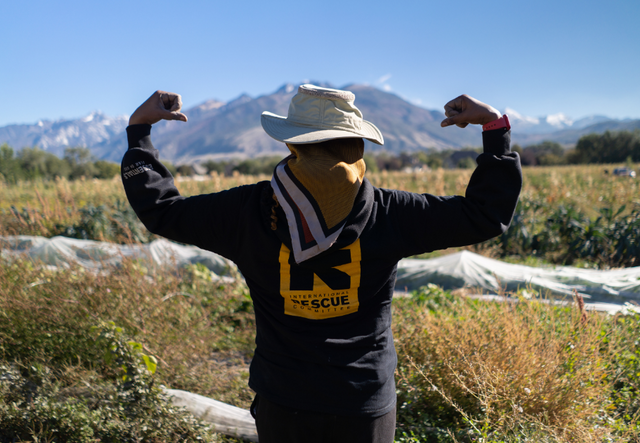
In late 2022, the IRC in Virginia introduced an Anti-Trafficking Program that provides assistance to survivors, engages in community outreach, raises awareness in underserved communities, and fosters relationships with local stakeholders.
Fast forward to today: the program, led by Richmond’s Anti-Trafficking Caseworker, Kimberly Cruz Lopez, currently offers substantial support to survivors in seven cities and counties in Central Virginia, from Richmond to Charlottesville.
Every story of survival is different, but the typical survivor who receives support from the IRC has migrated to Central Virginia after spending time at the border. Although often young, survivors range in age up to their mid-50s, and they often have very little documentation. As survivors, they are entitled to assistance, and that’s where the IRC steps in to provide direct case management, working to connect them with crucial services, benefits, and help from partner organizations.
The team works closely with other nonprofits, local governments, and numerous communities of faith. Kimberly regularly leads public awareness sessions to help educate the local community about the risk of domestic trafficking, how to prevent trafficking, and services provided by the IRC to help survivors. Her sessions foster new relationships with organizations that, in turn, provide more support for survivors. Examples include Sacred Heart Center, where participants can access free tax filing assistance, as well as workshops and trainings geared to the Latinx community. Staff pick up bags of groceries for survivors and their families at St. Thomas’ Episcopal Church’s food pantry. In addition, the Sacred Heart-based Conference of the St. Vincent de Paul Society contributes rent and utility support for survivors, which can make all the difference to keep someone in a safe home.
Without a doubt, the most important aspect of the Anti-Trafficking Program at the IRC is its focus on helping survivors move toward a successful future. Our team has to meet survivors where they are. Sometimes, that may even mean helping them understand that they are, in fact, survivors of labor or sex trafficking. We must build a level of trust, and this does take time. By listening and then working to provide help and understanding, we can help break down that wall of fear and start to see success.
If you would like to learn more about the IRC’s Anti-Trafficking Program, contact Kimberly Cruz Lopez at Kim.Cruz@Rescue.org. If you would like to volunteer, find information here.